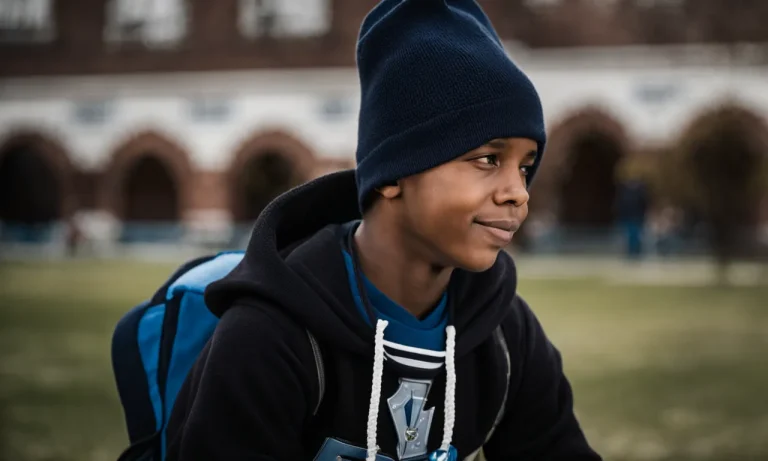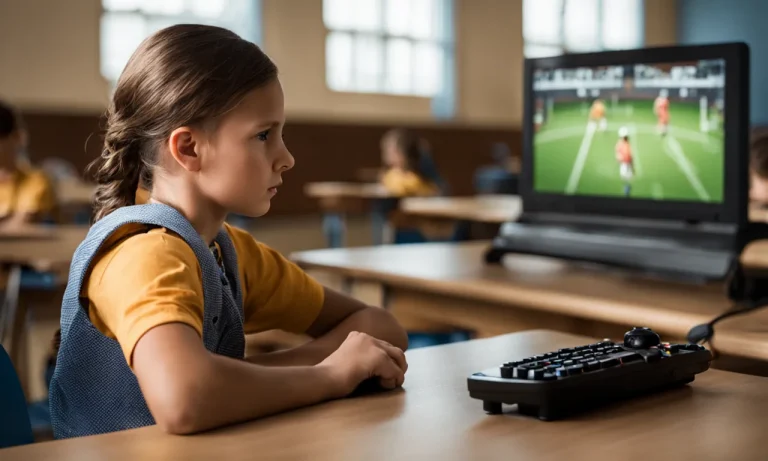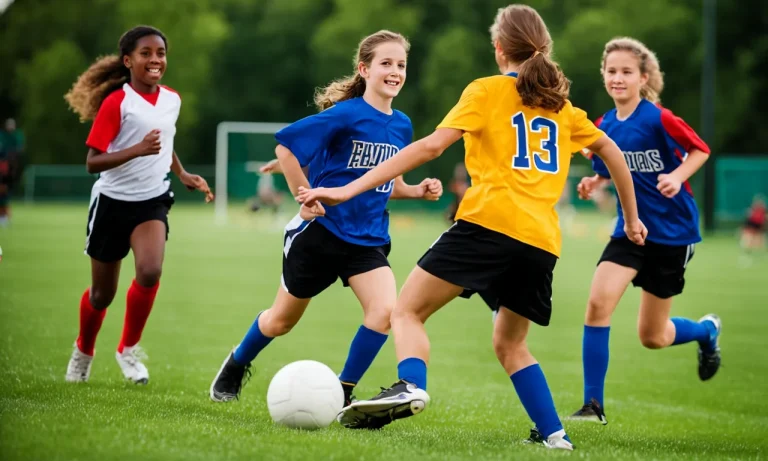Getting detention in school is never a fun experience for students. If you’ve ever found yourself stuck in a classroom during lunch or after the final bell waiting out your time, you know just how boring detention can be.
But do you really understand what detention is and how it works in schools today? Read on for a comprehensive guide examining school detentions.
If you’re short on time, here’s the quick answer: Detention is a form of school discipline where students are required to spend extra time in school, typically an hour or so, as a consequence for breaking school rules.
Detentions are usually held outside of normal class time, like during lunch or before/after school.
What Is Detention in Schools?
Detention in schools is a form of disciplinary action that is commonly used to address student misbehavior. It is a consequence that is imposed on students who have violated school rules or policies. Detention serves as a way to teach students about accountability and responsibility for their actions.
View this post on Instagram
A Form of School Discipline
Detention is a widely used form of school discipline that aims to correct student behavior and prevent future misconduct. It is often seen as a more lenient alternative to more severe disciplinary measures such as suspension or expulsion.
By assigning detention, schools provide an opportunity for students to reflect on their actions and make amends for their behavior.
Held Outside of Class Time
Detention sessions are typically held outside of regular class hours. This means that students are required to stay after school or during breaks to serve their detention. The specific time and duration of detention can vary depending on the school’s policies and the severity of the offense committed.
Lasting Around 1 Hour Typically
Detention periods usually last for about an hour, although this can vary depending on the school’s guidelines. During this time, students are often required to complete assignments, study, or engage in activities that promote self-reflection and personal growth.
The goal is to provide a structured environment where students can learn from their mistakes and develop better decision-making skills.
It is important to note that the purpose of detention is not to punish students, but rather to help them learn from their mistakes and become more responsible individuals. Schools use detention as a means of teaching students about the consequences of their actions and encouraging them to make positive changes in their behavior.
Why Do Schools Use Detentions?
Schools use detentions as a disciplinary measure to address various issues and promote a positive learning environment. Here are some reasons why schools implement detentions:
To Punish Minor Misbehavior
Detentions are often used to address minor misbehavior, such as tardiness, talking out of turn, or not completing homework. These infractions may not warrant more severe consequences like suspension, but they still need to be addressed.
By assigning detentions, schools aim to discourage these behaviors and encourage students to follow the rules.
Preferable to Suspension
Compared to suspension, detentions are seen as a less severe consequence. Suspension involves removing a student from school for a specific period, which can disrupt their education and social interactions. In contrast, detentions allow students to remain in school while serving their punishment.
This can be beneficial as it provides an opportunity for students to reflect on their actions and learn from their mistakes without being completely removed from the educational environment.
Teaches Responsibility
Detentions also serve as a way to teach students about responsibility and accountability for their actions. By assigning detentions, schools emphasize the importance of taking ownership of one’s behavior and the consequences that may follow.
This can help students develop valuable life skills, such as self-discipline and problem-solving, which are essential for their personal and academic growth.
View this post on Instagram
When Can Schools Give Detentions?
Detentions in schools are given as a disciplinary measure to address inappropriate behavior or violations of school rules. The specific circumstances under which a school can give detentions may vary from one educational institution to another.
However, there are some common reasons for which detentions are typically given.
Varies by School
The rules regarding when schools can give detentions can vary depending on the school’s policies and guidelines. Each school has its own set of rules and expectations for student behavior, which are typically outlined in a student handbook or code of conduct.
These rules help maintain a safe and productive learning environment for all students.
It’s important for students and parents to familiarize themselves with the specific rules and policies of their school to understand the circumstances under which detentions may be given. This can help students avoid behaviors that may lead to disciplinary action.
Common Reasons for Detention
While the exact reasons for detention can differ between schools, there are several common behaviors that often result in this disciplinary action. These may include:
- Repeatedly violating school rules or policies
- Disrupting the learning environment
- Using inappropriate language or gestures
- Bullying or harassment
- Skipping classes or being consistently tardy
- Failure to complete assignments or homework
These are just a few examples, and schools may have additional reasons for giving detentions based on their own specific circumstances and priorities.
Unexcused Tardiness/Absences
One common reason for which schools often give detentions is unexcused tardiness or absences. Being consistently late to school or skipping classes without a valid reason can disrupt the learning environment and hinder a student’s academic progress.
Detentions for unexcused tardiness or absences serve as a reminder to students of the importance of punctuality and regular attendance. They encourage students to develop responsible habits and ensure that they attend all classes regularly.
It’s worth noting that schools may have different policies regarding what constitutes an excused absence or tardiness. Parents and students should consult their school’s policies or reach out to school administrators for clarification.
What Happens During Detention?
Students Must Remain Silent
During detention, one of the main rules is that students must remain silent. This is to ensure a quiet and focused environment, allowing students to reflect on their actions and make better choices in the future.
By maintaining silence, students are encouraged to think about the consequences of their behavior and consider how they can improve their behavior in the future.
Work/Reading Allowed
While students are not allowed to talk during detention, they are typically given the opportunity to work on assignments or read quietly. This allows them to catch up on missed work, review material, or complete homework.
It’s important for students to use this time productively and take advantage of the opportunity to stay on top of their academic responsibilities.
Bathroom Breaks Restricted
In some cases, schools may restrict bathroom breaks during detention. This is to ensure that students remain focused and do not use bathroom breaks as an opportunity to socialize or disrupt the detention process.
However, it’s important for schools to strike a balance and ensure that students have access to basic needs. If a student has a medical condition or urgent need to use the restroom, they should be allowed to do so under supervision.
View this post on Instagram
Are There Any Rules for Detention?
When it comes to detention in schools, there are typically rules and guidelines that students must follow. These rules may vary depending on the specific school’s policies, but there are a few common rules that are often enforced.
School Policies Vary
Each school has its own set of policies regarding detention. Some schools may have a detailed code of conduct that outlines specific behaviors that can result in detention, while others may have more general guidelines.
It is important for students to familiarize themselves with their school’s policies to understand what actions may warrant a detention.
No Talking/Sleeping Typical
One common rule during detention is no talking or sleeping. Detention is often viewed as a time for reflection and discipline, so students are expected to remain quiet and attentive. This rule helps create a focused environment where students can think about their actions and learn from their mistakes.
Phones/Electronics Forbidden
In most schools, students are not allowed to use their phones or other electronic devices during detention. This is to prevent distractions and ensure that students are fully engaged in the detention process.
Detention is meant to be a time for self-reflection and personal growth, and the absence of phones and electronics helps create a conducive environment for this.
It’s worth noting that while these rules are common, they may vary from school to school. Some schools may have additional rules or guidelines specific to their institution. Students should always check with their school’s administration or refer to the student handbook for the most accurate and up-to-date information regarding detention rules.
Conclusion
Getting detention is never an exciting prospect, but understand that schools rely on it to maintain discipline and order. While the experience may seem tedious and boring at the time, detention can impart important lessons about personal responsibility.
If you find yourself stuck in detention, make the most of the time to catch up on work. With the right perspective, detention doesn’t have to be the terrible punishment it’s made out to be.






